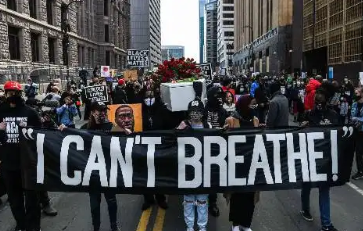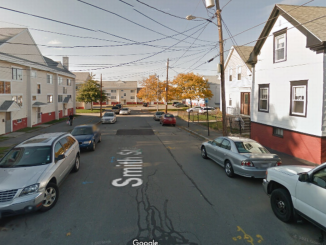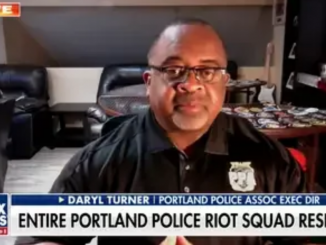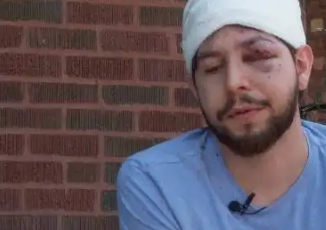
A year and a half after the murder of George Floyd at the hands of police, Minneapolis residents will soon vote on the city’s boldest attempt at reform yet: dismantling the police department and replacing it with a new agency called the Department of Public Safety.
Earlier this month, the Minneapolis City Council approved the addition of a question to the ballot this November asking voters if they’d be in favor of amending the city’s charter and replacing the Minneapolis Police Department outright. Voters will be asked to simply answer yes or no.
“I think what 2020 showed us is that our policing system is incredibly broken,” Munira Mohamed, a policy associate at the Minnesota ACLU, told VICE News. “Look at what the causes of violence in any community are, and it’s stuff like housing, poverty, and things that the police just are not equipped to deal with. Having a police-only public safety model doesn’t make any sense, as it doesn’t have the best intentions for the residents of this community.”
If residents vote to amend the city charter, the new Department of Public Safety would create an integrated system of trained medical and mental health crisis professionals and social workers as first responders alongside police and fire personnel. The change would also remove language in the current charter that mandates a minimum number of police employees, and place the new Department of Public Safety under control of the city’s 13-person city council rather than the mayor and police chief.
Should a majority of voters vote yes in November, it could mark the first major public safety shift of its kind in the country.
The ballot question is the culmination of work by Yes4Minneapolis, a coalition of 34 local businesses, organizations, and faith-based communities, including the state’s ACLU, hoping to bring a public-health focus to the city’s safety efforts.
The coalition has plenty of support as well: JaNae Bates, a communications director for Minneapolis organizations “Isaiah” and “Faith in Minnesota,” told VICE News that the coalition collected more than 22,000 signatures for their petition in favor of the charter change, 12,000 more than was needed to get the vote in front of the council.
“It shows the clear momentum around getting this done,” Bates said. “And this signature collection was happening in the middle of Minnesota winter. For readers who don’t understand how intense that is, it’s a big deal in a place where temperatures are known to drop to negative 68 degrees.”
While the conviction and sentencing of former Minneapolis cop Derek Chauvin in the murder of George Floyd last year was encouraging to residents, that one isolated instance of justice isn’t enough for some.
“We’ve had Dolal Idd. We’ve had Daunte Wright. The police killings are continuing,” Mohamed said. “What people really want to see is not just statements from their politicians. They want to see structural and permanent change that is visible and felt.”
But those who favor the change are not in the clear just yet. Minneapolis Mayor Jacob Frey vetoed two attempts to get the ballot question in front of Minneapolis residents earlier this month, an action that the council eventually overruled in a 9-4 vote.
Minnesota Senator Amy Klobuchar, House Rep. Angie Craig, and Gov. Tim Walz came out in opposition of the charter change, all saying they won’t support a measure that defunds policing. But the vote has nothing to do with police funding; rather, the charter gives the council the power to allocate money to other public safety services as it sees fit.
“It’s been distilled down to this: Defund police or fund police? I know it’s more complex than that, but I think that poses problems,” Walz said in an interview with local Fox affiliate KMSP this month. “So, I don’t think I would have this ballot question on there. I think there’s other ways to do it.”
In the lead-up to November, Bates said counteracting rhetoric tying this vote to the national movement around abolishing or defunding the police will be one of the primary obstacles for the charter change.
“In the city of Minneapolis, I would say the strong majority of people would not necessarily say that they are someone who wants to defund the police or abolish the police or even reform the police,” Bates said. “They are folks who say ‘I want to be safe.’ I want to make sure that if I need help, if I’m in a crisis, if I witness someone else in a crisis, that I can call and trust that the person that shows up will de-escalate, will bring resolution and may have some resources to help them out.”
Yes4Minneapolis believes that the alternatives elected officials are calling for instead of the charter change, isn’t a drastic enough step, particularly with the powerful Police Officers Federation of Minneapolis, the local union, advocating on behalf of the police department.
“There’s been all of these conversations about culture changes or personnel changes, changes in training and getting additional body cameras. The Minneapolis Police Department has a very well documented, 150-year history of having all of those options,” Bates said. “Reality is, as much as the police chief wants to make these changes, there is a Police Federation that holds all the cards. And the only way that we can get out of this mess, keep our city safe is by working together and ensuring that we’re removing the stronghold that has locked the city into something that doesn’t work.”
The Minneapolis Police Department declined to comment on the ballot question. Mayor Frey’s office did not respond to VICE News’ requests for comment.
While they’re well aware of just how influential their opposition is, the coalition says it’s focused entirely on informing the public.
“We know that we are going up against corporate landlords and the police federation,” Bates said. “We will be outspent for sure. But what we have that they don’t have is the will of the people. What we have is a bunch of folks who are ready to be safe.”
*story by Vice


